Jobless Growth in India: Chidambaram Accuses Govt of Favoring Rich
Former Finance Minister P Chidambaram criticizes India's economic growth, alleging it's jobless and favors the wealthy. He points to rising unemployment, high inflation, and widening inequality, questioning the government's policies.
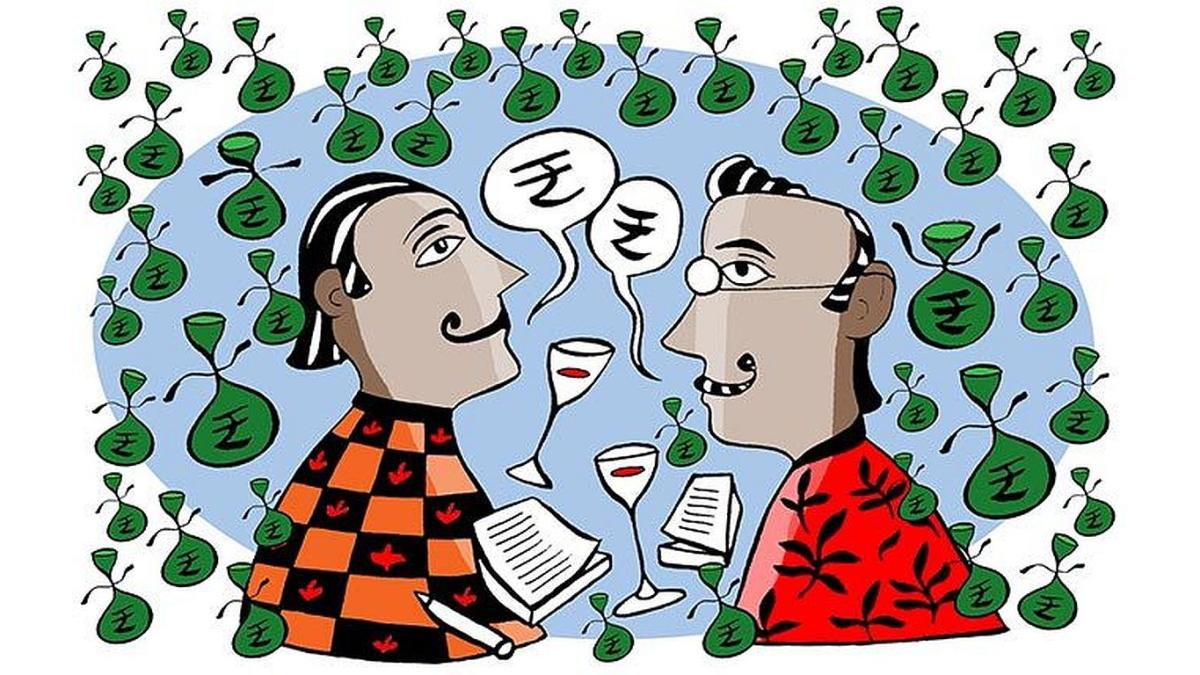
Illustration: Uttam Ghosh/Rediff.com
New Delhi, Dec 5 (PTI) Former finance minister P Chidambaram on Tuesday hit out at the government and accused it of steering a jobless growth, questioning if its policies are in favour of the rich.
Taking part in a short discussion on the economic situation in the country, the senior Congress leader said despite India becoming a large economy, growing at the fastest rate in the world with the largest FDI inflows, the growth is not seen on the ground.
He said India's worker population rate -- the number of workers to the total population -- is 46 per cent which is quite low but acceptable given the various circumstances in the country.
"Of the worker population, that is 46 per cent of the total population, male workers are 69 per cent but female is only 22 per cent. Of the worker population, less than 50 per cent actually work," he said.
Effectively, he said, "It means that only 23 per cent of the people work. This is more or less constant in the last nine and half years of the BJP government. Why, I ask, if we have such scintillating growth, why is this number not improving?"
Citing official periodic survey data, he said the unemployment rate in the age group 15-24 is 23.22 per cent; 42 per cent among graduates under the age of 25; 23 per cent among graduates between the age of 25-29 and nearly 10 per cent in graduates between the age of 30-34.
Stating that one out of four graduates will be unemployed and even until the age of 35 one out of ten will be unemployed, Chidambaram asked, "Why is this spirited growth, scintillating growth not turning into jobs?"
Keeping in mind most employment in this country is self-employment 57 per cent, he said even regular-wage employees have declined from 24 per cent to 21 per cent.
"Apart from the quantity, the quality of employment is also poor," he added.
On price rise, he said even today the CPI inflation is above the tolerance limit of 4-6 per cent of the RBI and food inflation is 9.2 per cent.
"What does the combination of high unemployment and high prices mean? It means that the impact will be felt in cut in domestic consumption, cut in household consumption," Chidambaram asserted.
Stating that the net financial assets of households have plummeted to the lowest level of 5.1 per cent, he said, "It means that people are consuming less, people are borrowing more, they are liquidating their household assets and savings and their net financial savings has come down to a historical low, 50-year low of 5.1 per cent.
The consequences of such developments are felt in child malnutrition and their education and mental ability, he said.
"Ultimately, the question is who is this government for? Is it for the poor, or is its policy so skewed that it is in favour of the rich?" the former finance minister asked.
He said 23 crore people of India are poor despite the poverty bar being very low at Rs 1,286 per month per person in urban areas and Rs 1,089 per month per person in rural areas.
"It shows up in inequality. The bottom 50 per cent (of the population) own 3 per cent of national wealth and gets 13 per cent of the national income. And the top 5 per cent owns 60 per cent of the national wealth and the top 1 per cent holds 22 per cent of the national income," he said.
This kind of growth is unacceptable, he said, adding,"We need more balanced growth".
Initiating the discussion, Derek O'Brien (TMC) said how India's economy is looking like depends on "through whose eyes you are looking through" and will be good if it is seen from the perspective of stock market growth, the rich and billionaires and also from a GDP growth point of view.
"But if you look at the economy through the eyes of any family anywhere in the country, what will those eyes looking at the economy tell you? Those eyes will tell you that from 2014 to 2023, the price of rice has gone up by 56 per cent, the price of wheat by 59 per cent, milk by 61 per cent, tomatoes by 115 per cent and tur dal by 120 per cent," he said.
O'Brien also asked if the wealth that has been created is passed on equitably to the citizens while highlighting that rural inflation has turned higher than urban inflation for the first time in six years.
"Yes, let the stock market go up, let the billionaires go up but spare a thought, more than a thought, for the marginalised and for the vulnerable," he added.
Aam Aadmi Party member Ashok Kumar Mittal said that we should not only see (GDP) figures but we have to see facts also.
BJD member Sujeet Kumar stated that it is jobless growth and agreed with Mittal over the issue of rising unemployment in the country.
YSRCP member V Vijayasai Reddy pointed towards the widening trade deficit of India.
RJD member Manoj Jha stated that all taxation and other numbers do not reflect the true picture if the poor's food plate does not have anything.
CPI (M) member Elamaram Kareem said tax concessions and incentives given to rich corporates are widening the gap between two Indias, the rich and the poor.
JDU member Aneel Prasad Hegde called for a permanent solution to the issues related to the economy in the country.
IUML member Abdul Wahab said that the government needs to see the real problem.
BJP member Sushil Kumar Modi said that if he (Chidambaram) will see with the glasses of his party (Congress) then he will not see the ground (reality).
Taking part in a short discussion on the economic situation in the country, the senior Congress leader said despite India becoming a large economy, growing at the fastest rate in the world with the largest FDI inflows, the growth is not seen on the ground.
He said India's worker population rate -- the number of workers to the total population -- is 46 per cent which is quite low but acceptable given the various circumstances in the country.
"Of the worker population, that is 46 per cent of the total population, male workers are 69 per cent but female is only 22 per cent. Of the worker population, less than 50 per cent actually work," he said.
Effectively, he said, "It means that only 23 per cent of the people work. This is more or less constant in the last nine and half years of the BJP government. Why, I ask, if we have such scintillating growth, why is this number not improving?"
Citing official periodic survey data, he said the unemployment rate in the age group 15-24 is 23.22 per cent; 42 per cent among graduates under the age of 25; 23 per cent among graduates between the age of 25-29 and nearly 10 per cent in graduates between the age of 30-34.
Stating that one out of four graduates will be unemployed and even until the age of 35 one out of ten will be unemployed, Chidambaram asked, "Why is this spirited growth, scintillating growth not turning into jobs?"
Keeping in mind most employment in this country is self-employment 57 per cent, he said even regular-wage employees have declined from 24 per cent to 21 per cent.
"Apart from the quantity, the quality of employment is also poor," he added.
On price rise, he said even today the CPI inflation is above the tolerance limit of 4-6 per cent of the RBI and food inflation is 9.2 per cent.
"What does the combination of high unemployment and high prices mean? It means that the impact will be felt in cut in domestic consumption, cut in household consumption," Chidambaram asserted.
Stating that the net financial assets of households have plummeted to the lowest level of 5.1 per cent, he said, "It means that people are consuming less, people are borrowing more, they are liquidating their household assets and savings and their net financial savings has come down to a historical low, 50-year low of 5.1 per cent.
The consequences of such developments are felt in child malnutrition and their education and mental ability, he said.
"Ultimately, the question is who is this government for? Is it for the poor, or is its policy so skewed that it is in favour of the rich?" the former finance minister asked.
He said 23 crore people of India are poor despite the poverty bar being very low at Rs 1,286 per month per person in urban areas and Rs 1,089 per month per person in rural areas.
"It shows up in inequality. The bottom 50 per cent (of the population) own 3 per cent of national wealth and gets 13 per cent of the national income. And the top 5 per cent owns 60 per cent of the national wealth and the top 1 per cent holds 22 per cent of the national income," he said.
This kind of growth is unacceptable, he said, adding,"We need more balanced growth".
Initiating the discussion, Derek O'Brien (TMC) said how India's economy is looking like depends on "through whose eyes you are looking through" and will be good if it is seen from the perspective of stock market growth, the rich and billionaires and also from a GDP growth point of view.
"But if you look at the economy through the eyes of any family anywhere in the country, what will those eyes looking at the economy tell you? Those eyes will tell you that from 2014 to 2023, the price of rice has gone up by 56 per cent, the price of wheat by 59 per cent, milk by 61 per cent, tomatoes by 115 per cent and tur dal by 120 per cent," he said.
O'Brien also asked if the wealth that has been created is passed on equitably to the citizens while highlighting that rural inflation has turned higher than urban inflation for the first time in six years.
"Yes, let the stock market go up, let the billionaires go up but spare a thought, more than a thought, for the marginalised and for the vulnerable," he added.
Aam Aadmi Party member Ashok Kumar Mittal said that we should not only see (GDP) figures but we have to see facts also.
BJD member Sujeet Kumar stated that it is jobless growth and agreed with Mittal over the issue of rising unemployment in the country.
YSRCP member V Vijayasai Reddy pointed towards the widening trade deficit of India.
RJD member Manoj Jha stated that all taxation and other numbers do not reflect the true picture if the poor's food plate does not have anything.
CPI (M) member Elamaram Kareem said tax concessions and incentives given to rich corporates are widening the gap between two Indias, the rich and the poor.
JDU member Aneel Prasad Hegde called for a permanent solution to the issues related to the economy in the country.
IUML member Abdul Wahab said that the government needs to see the real problem.
BJP member Sushil Kumar Modi said that if he (Chidambaram) will see with the glasses of his party (Congress) then he will not see the ground (reality).
You May Like To Read
TODAY'S MOST TRADED COMPANIES
- Company Name
- Price
- Volume
- Vodafone Idea L
- 7.33 (+ 2.09)
- 49418710
- Standard Capital
- 0.49 (+ 2.08)
- 24177276
- Integrated Industrie
- 19.52 (+ 2.57)
- 12400338
- AvanceTechnologies
- 0.64 (+ 3.23)
- 11280143
- Srestha Finvest
- 0.54 ( 0.00)
- 10950967
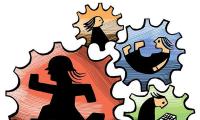

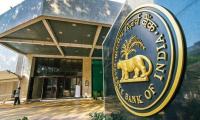
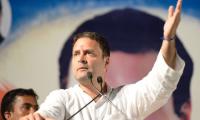

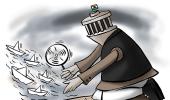

 © 2025 Rediff.com India Limited. All rights reserved.
© 2025 Rediff.com India Limited. All rights reserved.